I try to change nsl parametres with ALTER SESSION SET nls_date_format sentence in Oracle Application Express but parametres remain the same.
However in Oracle SQL Developer I am able to change them.
I would like understand why.
I have found this thread Number and date format : altering NLS_SESSION_PARAMETER does not work? in which Olafur Tryggvason comments something about "application settings" that override settings but I am not able to find the configuration. Should be in "Application Builder" but it is not.
IN APEX
Run
select * from nls_session_parameters;
Results
PARAMETER VALUE
NLS_LANGUAGE AMERICAN
NLS_TERRITORY AMERICA
NLS_CURRENCY $
NLS_ISO_CURRENCY AMERICA
NLS_NUMERIC_CHARACTERS .,
NLS_CALENDAR GREGORIAN
NLS_DATE_FORMAT mm/dd/yyyy
NLS_DATE_LANGUAGE AMERICAN
NLS_SORT BINARY
NLS_TIME_FORMAT HH.MI.SSXFF AM
Run
ALTER SESSION SET nls_date_format ="dd/mm/yyyy";
Results
Statement processed.
0.00 seconds
Run
select * from nls_session_parameters;
Results
PARAMETER VALUE
NLS_LANGUAGE AMERICAN
NLS_TERRITORY AMERICA
NLS_CURRENCY $
NLS_ISO_CURRENCY AMERICA
NLS_NUMERIC_CHARACTERS .,
NLS_CALENDAR GREGORIAN
NLS_DATE_FORMAT mm/dd/yyyy
NLS_DATE_LANGUAGE AMERICAN
NLS_SORT BINARY
NLS_TIME_FORMAT HH.MI.SSXFF AM
IN SQL DEVELOPER
Run
select * from nls_session_parameters;
Results
PARAMETER VALUE
NLS_LANGUAGE SPANISH
NLS_TERRITORY SPANISH
NLS_CURRENCY €
NLS_ISO_CURRENCY SPAIN
NLS_NUMERIC_CHARACTERS ,.
NLS_CALENDAR GREGORIAN
NLS_DATE_FORMAT mm/dd/yyyy
NLS_DATE_LANGUAGE SPANISH
NLS_SORT SPANISH
NLS_TIME_FORMAT HH24.MI.SSXFF
NLS_TIME_TZ_FORMAT HH24:MI:SSXFF TZR
NLS_DUAL_CURRENCY €
NLS_COMP BINARY
NLS_LENGTH_SEMANTICS BYTE
NLS_NCHAR_CONV_EXCP FALSE
Run
ALTER SESSION SET nls_date_format ="dd/mm/yyyy";
Results
1 fila insertadas.
Session alterado.
Run
select * from nls_session_parameters;
Results
PARAMETER VALUE
NLS_LANGUAGE SPANISH
NLS_TERRITORY SPANISH
NLS_CURRENCY €
NLS_ISO_CURRENCY SPAIN
NLS_NUMERIC_CHARACTERS ,.
NLS_CALENDAR GREGORIAN
NLS_DATE_FORMAT dd/mm/yyyy
NLS_DATE_LANGUAGE SPANISH
NLS_SORT SPANISH
NLS_TIME_FORMAT HH24.MI.SSXFF
NLS_TIME_TZ_FORMAT HH24:MI:SSXFF TZR
NLS_DUAL_CURRENCY €
NLS_COMP BINARY
NLS_LENGTH_SEMANTICS BYTE
NLS_NCHAR_CONV_EXCP FALSE
